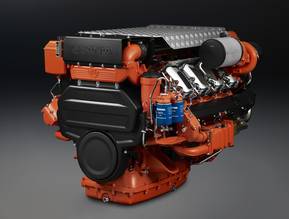-
06 Nov 2018
MarTID 2019: Autonomy & the Seafarer
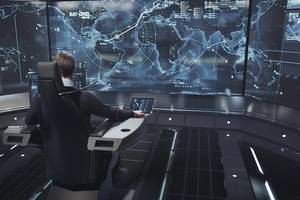
While the technology to facilitate autonomous shipping matures, many questions remain, led by the size, shape and role of the Future Mariner. The MarTID 2019 Survey aims to shed some light.The Maritime Training Insights Database steering group has announced the upcoming launch of the 2019 MarTID survey, which this year focuses on the trend toward autonomous vessel operations and its impact on training current and future mariners.
-
23 Jan 2018
Assessing Skills in the Maritime Industry
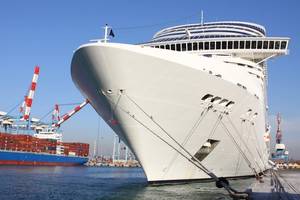
Never easy, but always a critically important task. It is critically important that we assess the ability of our mariners to perform the skills required to safely and efficiently do their jobs. It happens to also be very difficult to do so objectively and at the level of detail necessary to ensure safe operations and continuous improvement. This is especially true in dynamic, team-based scenarios such as drills and complicated safety-critical activities.
-
21 Nov 2017
Five Requirements for Safe Ops
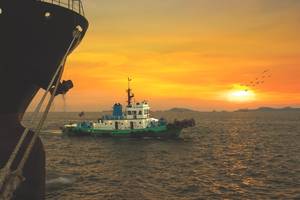
As I write this article I am flying back to my home base in Canada from the 42nd annual Interferry conference in Split, Croatia. Interferry is an outstanding conference full of dedicated and passionate ferry operators and those who serve the industry. One presentation was delivered by Captain John Wright, a Master Mariner who has spent his career in the maritime industry in a variety of roles including vessel master, marine superintendent, chief executive and general manager.
-
06 Nov 2017
Launch: MarTID - the Global Maritime Training Insights Database

MarTID – the Maritime Training Insights Database -- a historic initiative to study global maritime training practices -- launches today. There is broad agreement that as much as 80% of maritime accidents involve human factors causes. As such, top vessel operators and maritime training centers are pouring significant resources into creating best practice and innovative training programs. This is good.
-
03 Aug 2017
Improved Safety and Training, Part II

Everyone responsible for safety or training in their organization is very aware that everything is changing in the maritime world. The worker demographic has shifted. Regulatory demand is rising and compliance is more complex. Fortunately, it is also the case that maritime safety and training has entered a renaissance period. New tools are available that improve training outcomes and allow organizations…
-
23 Jun 2017
Improved Safety and Training, Step-by-step

Everyone responsible for safety or training in their organization is aware that everything is changing in the maritime world. The worker demographic has shifted; regulatory demand is rising; and compliance is more complex. Accidents are more public and the consequences more severe. Ignoring this changing operational context means we are creating risk for tomorrow – a risk that increases every day until finally something gives.
-
07 Dec 2016
The Training Implications of Subchapter M
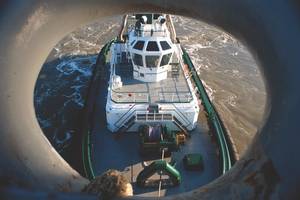
It’s a major understatement to say that Subchapter M is top of mind for workboat operators. While most would agree that the new regulations will raise the level of safety and operational sophistication, most would also likely agree that with change comes uncertainty, cost and effort. Thus it was no surprise that at October’s national meeting of the American Waterways Operators, discussions were dominated by Subchapter M and its implications for operators.
-
28 Mar 2016
Maritime Training: Implementing CI in Familiarization Training

Continuous Improvement (CI) is the process of continually analyzing the performance of some aspect of operations, and then applying changes intended to improve that performance. It is a critical component in maintaining the health of any operation and can be applied to almost any activity. This is the third and final installment in a series of articles intended to introduce CI, and to give some practical…
-
24 Feb 2016
Distance Learning: Continuous Improvement Part 2
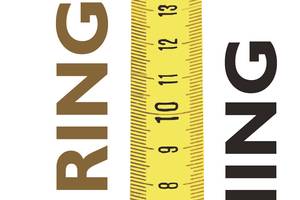
Continuous Improvement (CI) is the critical process of continually analyzing the performance of some aspect of operations, and then applying changes intended to improve that performance. This is the second in a series of articles intended to introduce practical tips for using CI to improve training effectiveness and efficiency in maritime organizations. Implementing a modest CI process for your in-house training is neither expensive nor difficult…
-
29 Jan 2016
SailSafe: A SEA Change for the Better
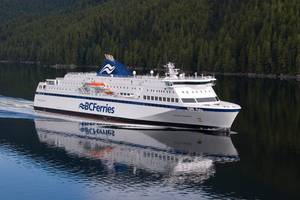
BC Ferries has improved its safety record, operational practices – and at the same time, its bottom line. In 2007, British Columbia Ferry Services Inc. (BC Ferries) initiated a union-management joint endeavor to create a world-class safety culture. This program, coined SailSafe, addressed a wide variety of safety-related aspects of BC Ferries’ culture and operational practices. By almost any measure, SailSafe has been a tremendous successf.
-
27 Jan 2016
Maritime Training & Continuous Improvement

Continuous Improvement (CI) is a term we hear a lot lately. Sadly, despite knowing the term and possibly even applying CI principles to some aspects of operations, CI principles are infrequently applied to in-house job and familiarization training. This is a mistake. First, it is neither difficult nor expensive to establish and maintain a program of CI for in-house training. Second, there is a good chance that if you do ignore CI…
-
27 Mar 2015
Maritime Training Five Years from Now: A Look Ahead
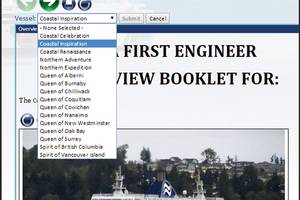
For anyone involved in maritime training, now is an incredibly exciting time full of opportunity. More than ever before, there are new advanced techniques and technologies available that can significantly improve training outcomes and access to training, while keeping costs under control. Properly deployed, these advances will improve safety - on that, the research is very clear. This article looks…
-
15 May 2014
Does e-Learning Work?

It’s time to put that question behind us. Once a question has been carefully analyzed and a reliable answer has been found, it is time to use this new knowledge to help answer the next series of important questions. This is the current situation in some parts of the maritime industry surrounding the question of whether eLearning works. To illustrate, some months ago there was a familiar discussion on an online maritime group debating whether eLearning works.
-
04 Dec 2013
The Magic Ingredients of a Healthy Safety Culture
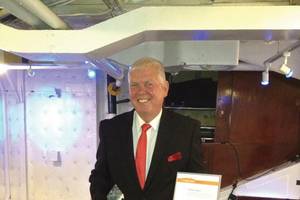
This is the second in a series of Maritime Reporter and Engineering News articles on Safety Culture in the maritime industry. The first article, which appeared in our October, 2013 edition, discussed the importance of management leadership, training, measurement, a focus on learning rather than blame, and continuous reflection on safety. In this second article, safety culture expert Captain John Wright discusses the key ingredients of a healthy safety culture.
-
21 Oct 2013
Safety: A Shift in Culture

“Safety Culture” is one of those terms that is used a lot in the maritime industry. We all think it is important, and every operator wants a “good” safety culture. But how does one get it, and then keep it once it is there? This is the first of a pair of articles looking at safety culture in the maritime industry. What is Safety Culture? The IMO tells us “An organization with a ‘safety culture’ is one that gives appropriate priority to safety ... This is a fair, but arguably limited description.
-
18 Jun 2013
Sail Safe BC Ferries’ Safety Initiative

BC Ferries cut time loss injuries in half; it reduced serious injuries by two-thirds; it slashed annual insurance claims costs by more than three-quarters. What are you waiting for? Can a vessel operator completely reshape its safety culture? Can it transform communications, training, operational practices and even employee engagement? And most importantly, if an operator is able to make such sweeping changes, what measurable difference will it make?
-
21 Mar 2013
Vessel Specific Training Via Adaptive Learning Experience
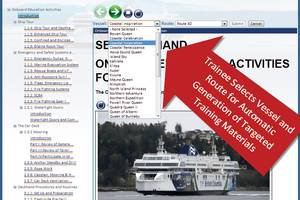
It is difficult and expensive to do vessel-specific training well. This is probably why, unlike certification training, it is under specified, and in many cases poorly implemented - often via job shadowing. But there is a technology which is an excellent tool for vessel-specific training, and every vessel operator should be aware of it. It is called adaptive learning. This article describes adaptive…
-
06 Dec 2012
Maritime Mentoring

There are very few forms of learning which are as effective and personal as mentoring. And nowhere is mentoring more important than it is in the maritime industry. It is with this in mind that a group of volunteers have created the on-line “International Maritime Mentoring Community” at www.MaritimeMentors.com. This is a 100% volunteer/free site that exists only for the betterment of the maritime industry.
Subscribe for
Maritime Reporter E-News
Maritime Reporter E-News is the maritime industry's largest circulation and most authoritative ENews Service, delivered to your Email five times per week



